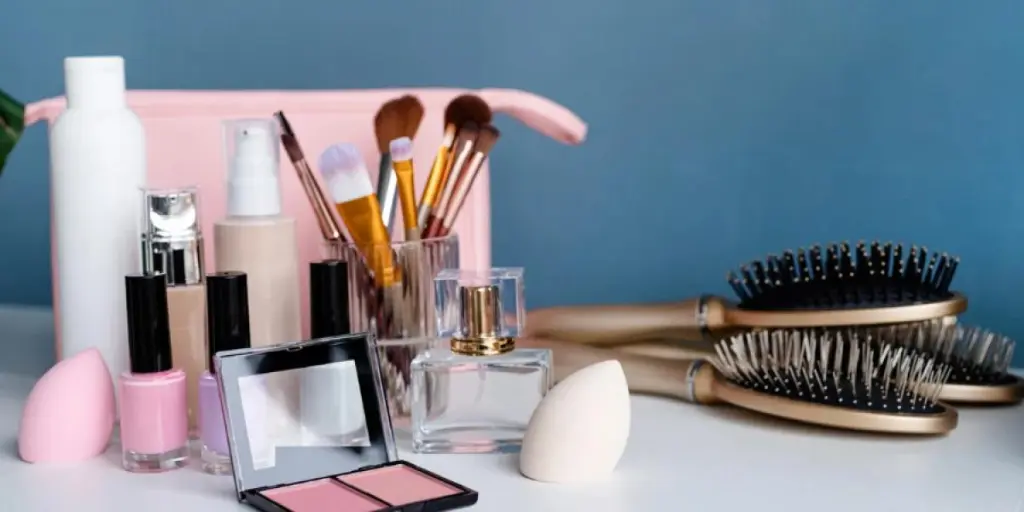The beauty industry has undergone significant transformations in recent years, largely influenced by technology, the COVID-19 pandemic, and evolving societal perspectives. As consumers’ needs and expectations continue to rise, beauty brands face the challenge of adapting to these changing dynamics, which can often seem contradictory. In this blog post, we will explore the five contradictions that are shaping 2023’s beauty industry trends and delve into the various factors that have contributed to these shifts.
1. Contradictions in Consumer Preferences: From “Self Acceptance” to “The Best Version of Myself”
In the post-COVID era, concepts like self-love, self-acceptance, personal growth, and holistic well-being have gained prominence. The focus has shifted from purely aesthetic research to a more holistic approach to care, emphasizing the well-being of the body and mind. However, alongside these ideals, hashtags like #plasticsurgery, #babybotox, and #buccalfatremoval have gained popularity. Plastic surgery and cosmetic alterations are no longer taboo topics but have become openly embraced choices, partly influenced by social media and celebrity culture. The COVID-19 lockdowns and increased exposure to unflattering Zoom calls have also impacted people’s self-perception and fueled the demand for cosmetic procedures. At the Clinique des Champs-Elysees, Europe’s largest aesthetic clinic, requests for consultations have increased by 20-30% since the start of the pandemic.

The tension between body positivity and the growing popularity of plastic surgery arises from conflicting ideas about body image, self-acceptance, and self-confidence. Some argue that cosmetic procedures can be a form of self-care and empowerment, considering them as “tweakments” that subtly enhance one’s appearance. However, others view these procedures as perpetuating harmful beauty ideals and promoting a culture of perfectionism. This tension reflects an ongoing debate about the role of appearance in self-worth and the definition of beauty in today’s society.
2. The Cosmetics Industry’s Call for Redefinition of Beauty: Embracing Individuality and Diversity
In response to these contradictions, the cosmetics industry is reimagining the concept of beauty and challenging traditional standards perpetuated by media and society. Coty have launched an #undefine beauty campaign to redefine the notion of beauty, emphasizing individuality, diversity, and inclusivity. In their petition to challenge beauty standards, they are aiming to encourage people to embrace their unique features and celebrate their differences instead of conforming to unrealistic beauty standards. Such initiatives highlight the importance of self-love, acceptance, and empowerment. It’s a petition that’s gained a lot of traction on social media; a powerful reminder through the sharing of stories that beauty comes in many different forms and that we should all celebrate and embrace our own unique qualities.The brand OUI the People was founded in 2015 with the same mission : “The reConstitution of Beauty” to bring together all kinds of beauty, regardless of origin, color or gender.
3. Navigating the Changing Landscape between Science-Based Innovations and Initiatives Anchored in Nature
Beauty brands face the challenge of reconciling these contradictory consumer preferences. The days of guru-like brands are fading, as consumers have become more knowledgeable and discerning, seeking value for money. Brands must offer the best of both worlds, combining ultra-targeted products tailored to individual needs with inclusive, multi-purpose offerings that reduce waste. From the ultra-inclusive “crème universelle” de Oh My Cream!, to Nideco’s soothing breast care and the disability friendly brand Victorialand, the industry has thrived to cater to diverse audiences.

Science-Based Dynamics: Personalized Innovations Shaping the Beauty Industry
Advancements in technology and scientific research are revolutionizing the beauty industry. Players such as Current Body, backed by celebrities Kate Hudson and Kaley Cuoco, are investing in Photomodulation, which involves using LED masks to improve various skin and hair conditions. Meanwhile brands such as Medi-Peel are using advancements in microencapsulation and tissue oxygenation to drive skincare formulations.
L’Oréal group and its professional hair care brand Kerastase are paving the way in using personalized diagnostic tools and epigenetics to offer promising avenues for tailored beauty solutions. Similarly, with its Elixir Hair range, Rituals offers customized product composition with over 715 different blends available. Shiseido is taking the link between science and personalization one step further, using indigenous skin bacteria as a unique skin fingerprint that could allow for super-premium personalization.

Additionally, the emerging field of neurocosmetics explores the intersection of neuroscience and cosmetics, with the potential to affect mood, emotions, and cognitive function through skincare products. Some neurocosmetic products claim to use ingredients that can boost the production of neurotransmitters like serotonin and dopamine, which are associated with feelings of happiness and pleasure. Other products claim to have a calming effect on the nervous system, reducing stress and anxiety – like the young startup of Swiss cosmetics experts, I.D. Swiss Botanicals, that has developed a new range of technical, affordable skincare products based on plant-derived ingredients which boast neuro-active properties.
Embracing Nature and Alternative Approaches
But while science-based innovations dominate the beauty industry, alternative dynamics rooted in natural ingredients are also gaining popularity. With the denunciation of beauty standards and the pressure that comes with them, also comes a new approach to beauty and care as a source of mental fulfillment and alignment with one’s deep values. The hit brand Philosophy dermatologic wisdom embodies this focus on emotional sustainable beauty.
Cosmic beauty harnesses celestial elements to promote well-being, with products that contain ingredients like meteorite dust to balance the body’s energy and promote a sense of calm and relaxation. Meanwhile, gem-based beauty leverages the healing properties of gemstones. Though scientific evidence supporting these trends may be limited, many individuals find them relaxing and enjoyable as part of their beauty and wellness routines.
4. Solving the Contradiction: Science at the Service of Nature
Biotechnology harmonizes the realms of “clean” and “clinical” by leveraging technology to imitate and replicate the natural processes of endangered living organisms in a laboratory setting. This approach allows beauty companies to generate safe and lab-grown active ingredients, preserving the earth’s resources while maintaining their effectiveness. Additionally, it enables them to revive and modernize ancestral practices.
Alpyn Beauty is a brand that embodies this purpose, embracing the convergence of “Wild Beauty” and “clinical” expertise. Their mission involves sustainably hand-harvesting wild plants at their peak potency, punctuating their power with proven clinical actives. The brand bridges the gap, bringing foraging from the table to the shelf.
5. A Holistic Approach of Well Being: Beauty and Health Combined
“For a longer life, better lived”. This is the purpose of Palazzo Fiuggi, an Italian palace opened at the end of May 2021, located 50 minutes from Rome and offering learning to live healthily by combining ancestral knowledge and holistic practices with the Holy Grail of medical equipment. They offer personalized programs that go beyond short term beauty tweakments, such as longevity, restoration and balance or medical and diagnostic that comes up on the same level as detox and weight.
Ultimately, the future of the beauty industry lies in merging beauty and health through a combination of holistic habits and products. This approach emphasizes self-care practices like mindfulness, yoga, and acupuncture alongside gentle and nourishing skincare and beauty products. It recognizes that the pursuit of self-improvement and self-acceptance is unique to each individual, and there is no one size-fits-all approach to achieving a healthy and fulfilling life.
To sum up : Embracing the Ever-Evolving Beauty Landscape
The beauty industry is undergoing a significant transformation, driven by technology, societal shifts, and changing consumer expectations. Brands must navigate the contradictions that shape current consumer preferences, while striving to offer inclusive, empowering, and innovative solutions. As the industry continues to redefine beauty, embracing individuality, diversity, and holistic well-being will be key to meeting the diverse needs of consumers in a post-pandemic world.
About Julie Darras
A graduate of ESCP Business School with + 15 years in design and advertising agencies as Account Director and New Business Director, Julie joined SGK in October 2021. Part of the European Business Development team, her responsibility is to grow the European offices throughout their Brand Experience capabilities, working on both regional and global opportunities.Julie has a strong track record in the beauty industry, managing and growing some worldwide accounts such as Gorgio Armani, Cerave, Lancôme, Yves Saint Laurent, Nivea, Yves Rocher, René Furterer (Pierre Fabre), Lancaster, Davidoff, Joop!, Jil Sander, Adidas, Bourjois, Rimmel. Her vision of Beauty : “Beauty is everywhere. You just need to wear the right glasses to see it.”
Source from sgkinc.com
Disclaimer: The information set forth above is provided by sgkinc.com independently of Chovm.com. Chovm.com makes no representation and warranties as to the quality and reliability of the seller and products.




